Books On Press Tool Design
Tool and die makers are responsible for designing and building moulds, dies, and fixtures that allow thousands of products to be made every single day. They should have vast knowledge in the field of Tool & Die so that they can make a product that can be converted from imagination to reality.
If you are willing to enter this field either to do business in this field or to become a Tool & die maker to drive a company as an engineer, manager or Plant head you must have a vast knowledge of Tooling that consist Designing, Machining and assembly. The best way to master the trade, and usually the most common, is to learn from a mentor. So for that, you need to go through the best books that are written by masters in the corresponding field.
Here are the list of 5 must have books for every Tool & Die maker.
1. Fundamentals of Machining and Machine Tools
This book is intended primarily for those studying and teaching the principles of machine tools and metal machining in universities and colleges. It should also prove useful to those concerned with manufacturing in the industry. The mathematical content of the book is deliberately limited. Those who have taken basic courses in statics and dynamics and who have had an introduction to calculus should have no difficulty comprehending the material. Many of the present texts dealing with the same material are purely descriptive. In this book, the approach is to illustrate, through fundamentals and analysis, the causes of various phenomena and their effects in practice. Emphasis is given to the economics of machining operations and the design of components for economic machining. A significant portion of the book is based on a previous text written by one of the authors (Geoffrey Boothroyd) and published by McGraw-Hill. While much of this material has been retained, recent developments have been included where appropriate. Several new chapters have been introduced and others have largely rewritten. The section on tool materials has been expanded to include the modern materials that are contributing significantly to increases in productivity in the industry
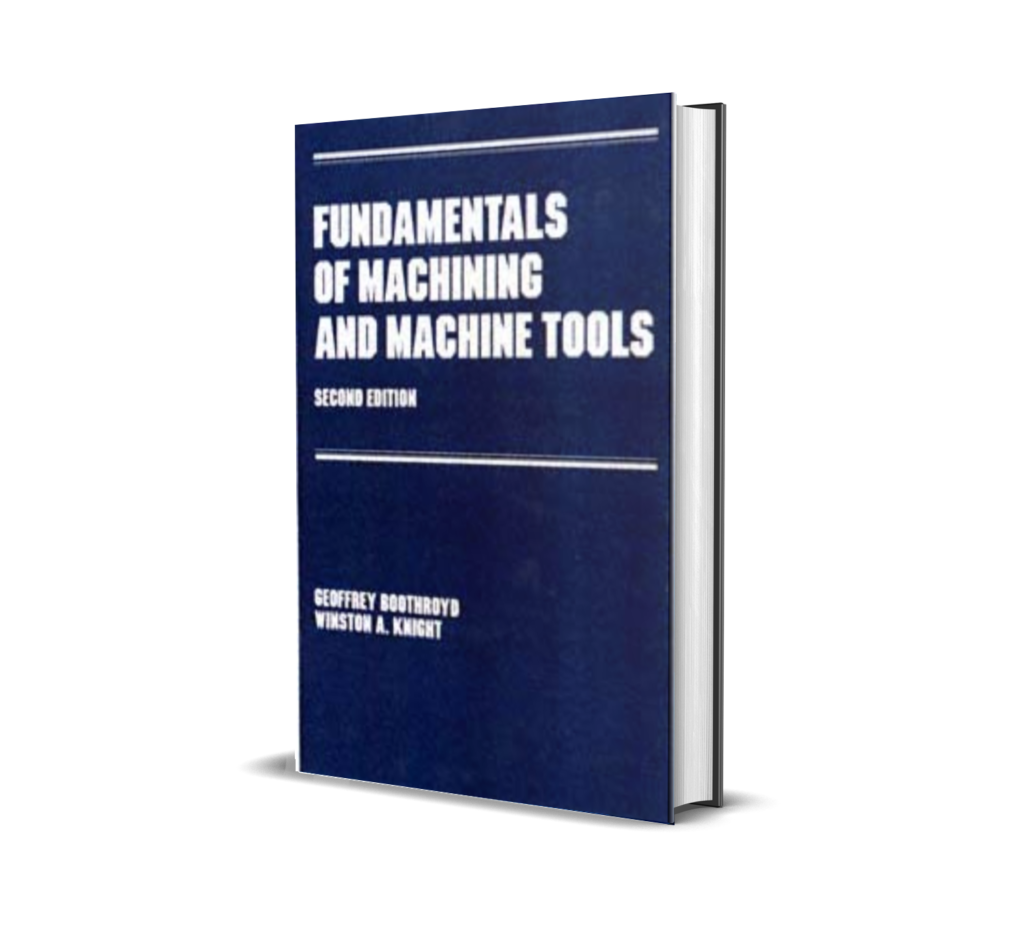
2. Design of Jigs, Fixtures and Press Tools
The book, Design of Jigs, Fixtures and Press Tools by K. Venkataraman, is intended for undergraduate students in Mechanical Engineering and Production/Manufacturing Engineering students. It is a treatise on two major topics in 'Tooling', viz. (a) Jigs and Fixtures and (b) Press Tools and thus makes it comprehensive for undergraduate students of Mechanical Engineering and allied branches. The book covers all the major topics in the subject.
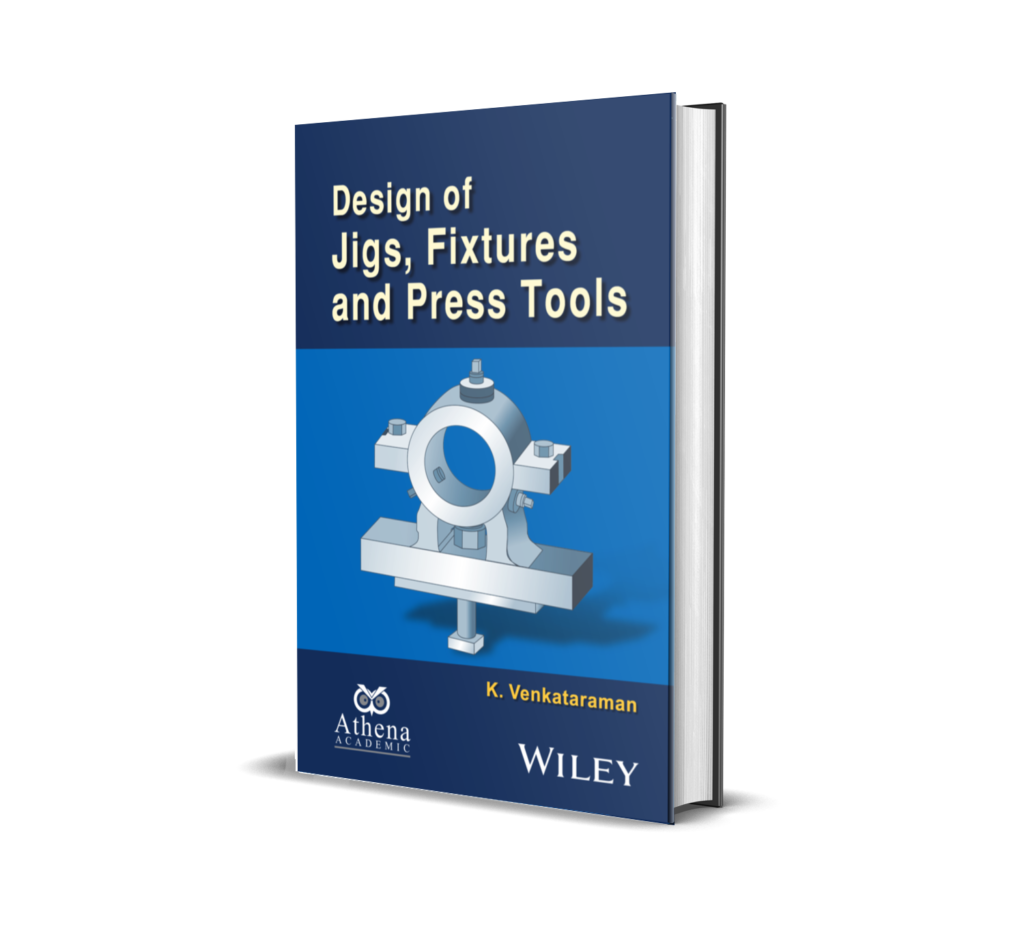
3. The Complete Part Design Handbook For Injection Molding of Thermoplastics
This handbook was written for the injection moulding product designer who has limited knowledge of engineering polymers. It is a guide for the designer to decide which resin and design geometries to use for the design of plastic parts. It can also offer knowledgeable advice for resin and machine selection and processing parameters. Manufacturer and end-user satisfaction is the ultimate goal. This book is an indispensable, all-inclusive, reference guide that can be used by any plastic product designer. There is no need to search through many books and catalogues for needed information. New illustrations, graphs and equations have been included to provide additional clarity for complex ideas. The equations have been verified to ensure correctness and not just copied from another source. Thousands of hours of research and cross-referencing have gone into the completion of this work. In addition, more than 35 years of the "hands-on "experience of a plastics expert have been incorporated in this handbook.
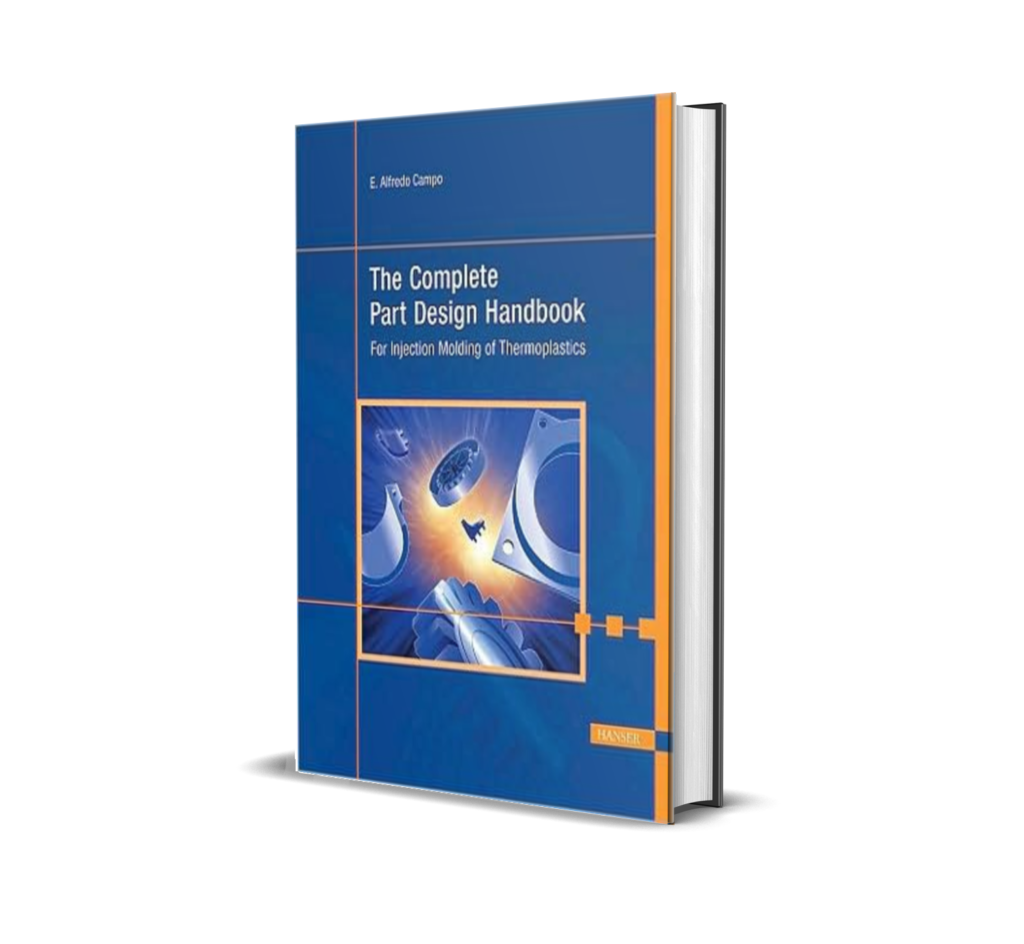
4. Sheet Metal Forming Processes and Die Design
This book draws on the author's 30-plus years of experience as an engineer and provides a complete guide to modern sheet-metal forming processes and die design — still the most commonly used manufacturing methodology for the mass production of complex, high-precision parts. Much more practical than theoretical, the book covers the "hows" and "whys" of product analysis, and the mechanisms of blanking, punching, bending, deep drawing, stretching, material economy, strip design, movement of metal during stamping, and tooling design. Readers will find numerous illustrations, tables, and charts to aid in die design and manufacturing processes; Formulas and calculations needed for various die operations and performance evaluation are included; and designations, characteristics, and typical applications of various carbon and alloy steels for different die components are evaluated. The book concentrates on simple, practical engineering methods rather than complex numerical techniques to provide the practising engineer, student, technician, and die maker with usable approaches to sheet-metal
forming processes and die design
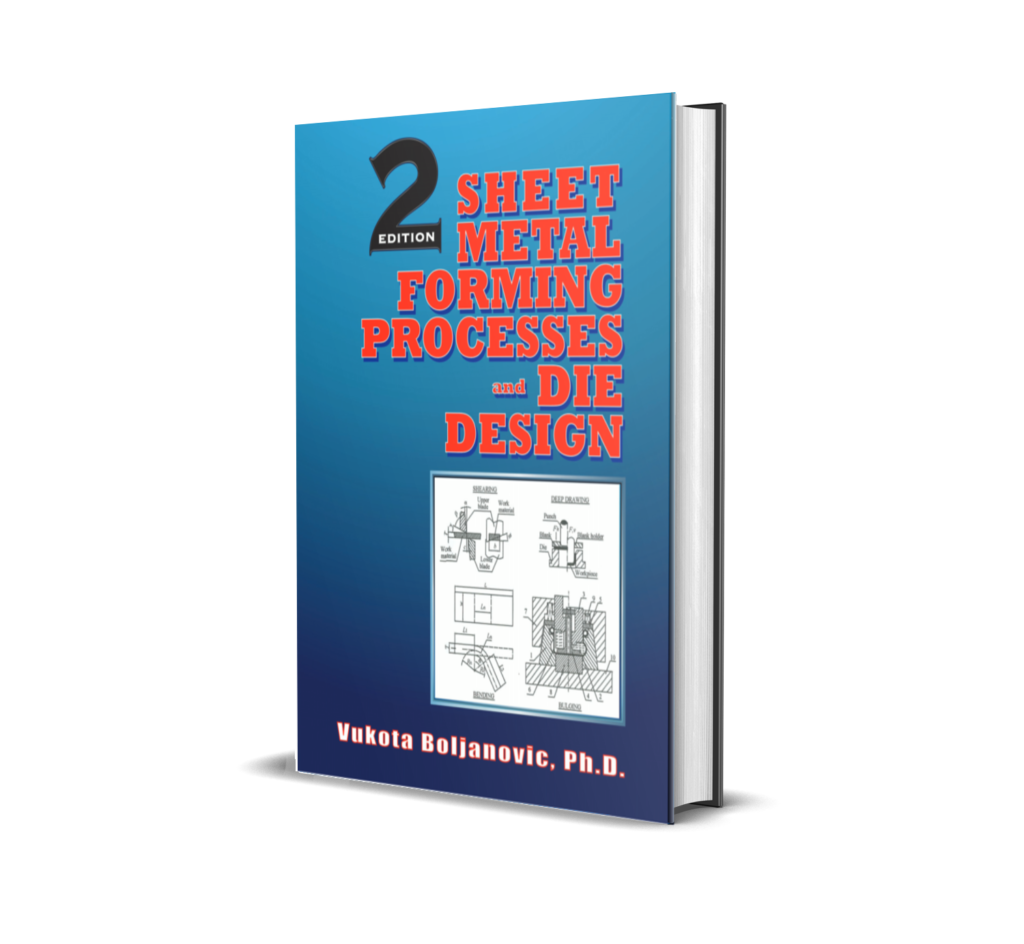
5. Geometrical Dimensioning and Tolerancing for Design, Manufacturing and Inspection
This book presents the state of the art regarding geometrical dimensioning and tolerancing. It describes the international standardization in this field, which is laid down in ISO Standards. It indicates the deviations between the American Standard ASME Y14.5M, the former East European Standards and the ISO Standards. It describes the additional specifications laid down in the German Standards (DIN Standards). Possible further developments in the field of geometrical tolerancing are also pointed out. What has to be regarded for manufacturing within the geometrical dimensioning and tolerances is explained. Principles for the inspection of geometrical deviations are given, together with a basis for tolerancing suitable for inspection. Examples for tolerancing appropriate to various functional requirements, a guide for geometrical tolerancing, are described. This book may serve as an introduction to geometrical dimensioning and tolerancing for students, and may also help practitioners in the fields of design, manufacturing and inspection.
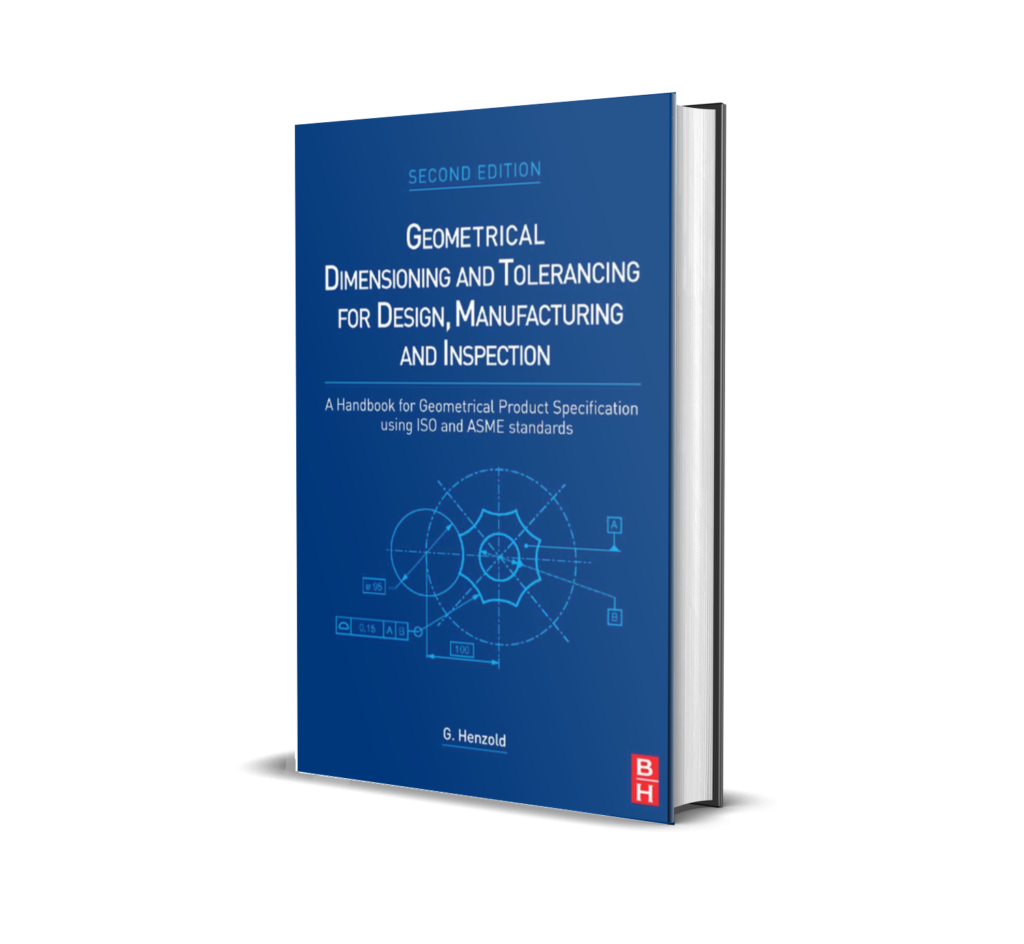
Books On Press Tool Design
Source: https://industrylearning.co.in/5-books-for-tool-die-maker/
Posted by: romerocolookstal44.blogspot.com

0 Response to "Books On Press Tool Design"
Post a Comment